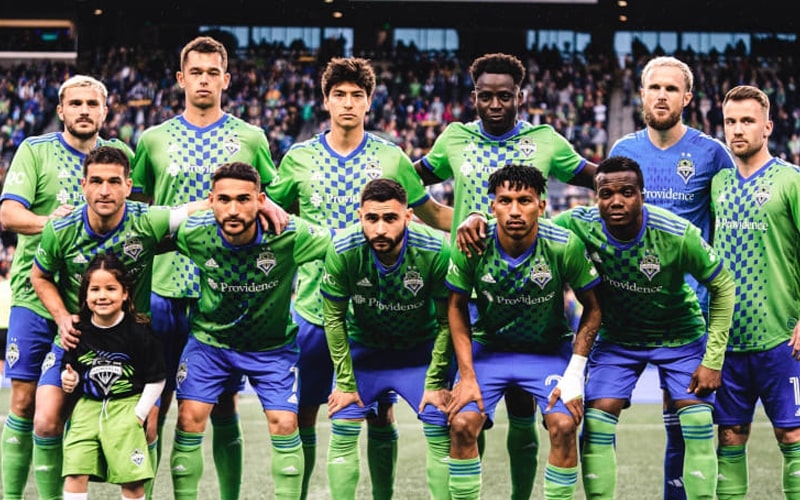Style of Play: Attacking vs. Defensive
One of the most noticeable differences in coaching philosophies in Major League Soccer is the varying emphasis on attacking and defensive play. Some managers, like Atlanta United’s Gerardo “Tata” Martino, prioritize an offensive approach. During his time in MLS, Martino’s team scored a league-high 70 goals in the 2017 season and 58 goals in the 2018 season. In contrast, other coaches like Peter Vermes of Sporting Kansas City have adopted a more defensive style of play, focusing on solidifying their backline. Vermes’ team had the best defensive record in the 2017 season, conceding just 29 goals.
Player Development: Focusing on Youth vs. Experience
Another significant difference in coaching philosophies is the emphasis on player development, particularly in terms of prioritizing younger players over experienced ones. Some MLS managers, like FC Dallas’ Luchi Gonzalez, have heavily invested in their youth academies and prioritize developing young talent. In 2019, the average age of FC Dallas’ starting lineup was 24.6 years old, one of the youngest in the league.
On the other hand, some coaches focus on building squads with experienced players, often signing veterans who have proven themselves in other leagues. For example, LA Galaxy manager Guillermo Barros Schelotto has built a squad with multiple high-profile veterans, including Zlatan Ibrahimović and Jonathan dos Santos.
Formation and Flexibility: Fixed vs. Adaptable
Tactical formations and the ability to adapt them during a match are another aspect that separates coaching philosophies in MLS. Some managers prefer to stick with a fixed formation throughout the season, while others display more flexibility in adjusting their tactics based on the opponent or match situation.
For example, Toronto FC’s Greg Vanney has been known for his tactical flexibility, often switching between a 3-5-2 and a 4-4-2 formation during matches. This has allowed Toronto FC to adapt to different situations and exploit weaknesses in the opposition.
On the other hand, some coaches like Jim Curtin of Philadelphia Union have preferred to maintain a consistent formation, in his case, a 4-2-3-1. Maintaining a consistent formation can help build team chemistry and allow players to become more comfortable in their roles.
Man Management: Player Motivation and Discipline
How a coach manages their players off the field is another crucial aspect of their philosophy. Some managers, like Bruce Arena of New England Revolution, are known for their ability to motivate players and maintain discipline within the squad. Arena has been successful in turning around struggling teams, as evidenced by his impact on New England Revolution since taking charge in 2019. The team went from being at the bottom of the Eastern Conference standings to making the playoffs in his first season.
In contrast, other coaches may struggle with man-management and maintaining player discipline. For example, former Colorado Rapids coach Anthony Hudson was criticized for his inability to connect with his players, which was cited as one of the reasons for the team’s poor performances during his tenure.
International Experience: Local vs. Global
Another factor that can differentiate coaching philosophies in MLS is the amount of international experience a coach brings to the table. Some managers, like NYCFC’s Ronny Deila, have extensive experience coaching in Europe, which can be beneficial in terms of tactical knowledge and understanding different styles of play.
On the other hand, some coaches like Caleb Porter of Columbus Crew have primarily worked within the American soccer system, focusing on understanding the intricacies of MLS and developing homegrown talent.
Both approaches have their merits, and the most successful managers often find a balance between incorporating international influences while maintaining a strong understanding of the unique challenges posed by MLS.
Use of Analytics: Data-Driven vs. Traditional
The use of analytics in soccer has grown significantly in recent years, and some MLS coaches have embraced this trend as part of their coaching philosophy. Managers like Brian Schmetzer of Seattle Sounders are known for their data-driven approach, using analytics to inform their tactical decisions and player evaluations.
In contrast, some coaches, like former Houston Dynamo manager Wilmer Cabrera, have been more reluctant to incorporate analytics into their coaching, preferring to rely on traditional methods of player evaluation and tactical planning. While the use of analytics in soccer is still a developing field, data-driven coaching philosophies have seen success in MLS, with teams like Seattle Sounders consistently performing well in recent years.
Adaptability: Embracing Change vs. Sticking to a Plan
The ability to adapt to changing circumstances, both on and off the field, can be a defining factor in a coach’s success in MLS. Some managers, like Adrian Heath of Minnesota United, have displayed a willingness to change their tactics, formation, and personnel based on the challenges they face. This adaptability has helped Minnesota United go from an expansion team in 2017 to a playoff contender in just a few years.
In contrast, some coaches can be criticized for their stubbornness and unwillingness to change, even when faced with poor results. Former San Jose Earthquakes coach Mikael Stahre was often criticized for his inflexible tactics and inability to adapt to the challenges posed by MLS during his tenure.




